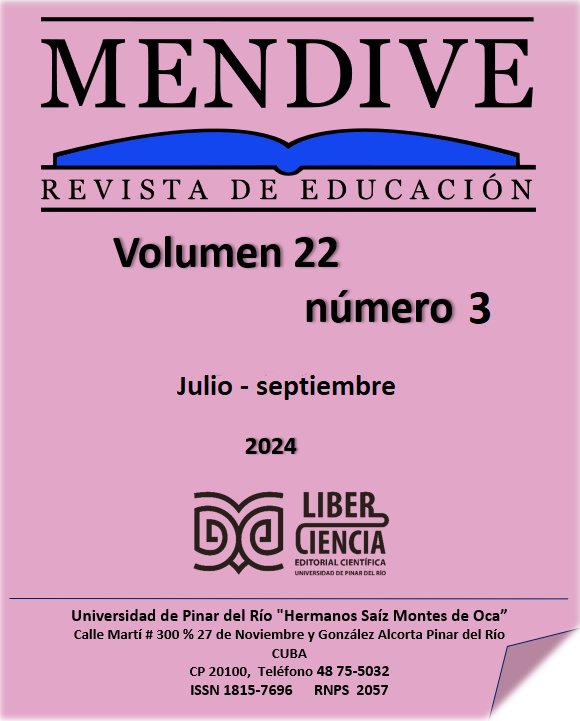Transformation of educational practices for the metacognitive stimulation of the university student
Main Article Content
Abstract
Metacognitive stimulation is an effective way to transform educational practices and to promote the comprehensive training of university students. By encouraging reflection, self-regulation and self-knowledge, students are empowered in their learning and personal development process. The objective of this research was to substantiate the actions to be carried out by the year group to stimulate the metacognition of university students, while, at the same time, proposing a psych pedagogical conception to guide the year groups in this process. Using a qualitative methodology, based on a grounded theory approach, a sample of teachers and counselors were interviewed in the local context, followed by theoretical sampling of external specialists, experts and counselors. Finally, the data were processed using the ATLAS.ti software and the main findings were contrasted through document analysis. The results highlight the importance of coordinated action by year groups to model metacognitive diagnosis and to establish educational strategies that incorporate metacognitive stimulation in all training activities. The logical and theoretical coherence of the proposal is emphasized, underlining the need for adequate methodological work and adaptation to the characteristics of professional training for its practical implementation. The relevance of transforming educational practices through metacognitive stimulation to enhance the comprehensive development of university students is highlighted.
Downloads
Article Details

This work is licensed under a Creative Commons Attribution-NonCommercial 4.0 International License.


